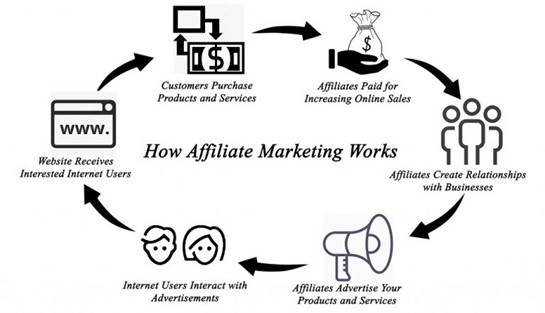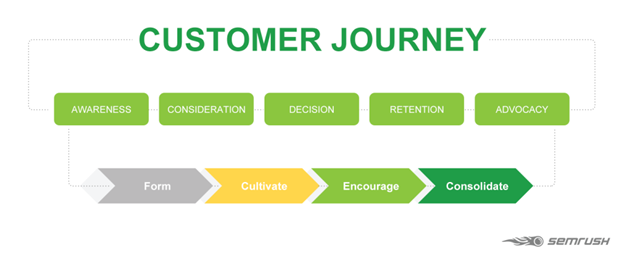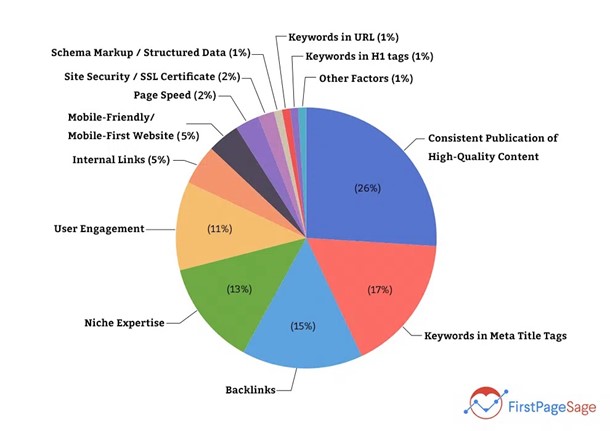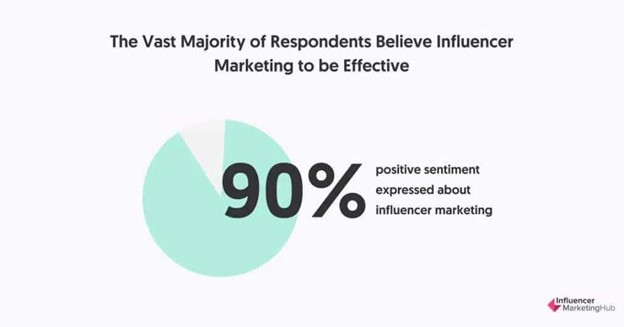As the internet has expanded over the years, so has the field of digital marketing. Through it, marketers have found nearly endless possibilities to reach out to and tap into vast new audiences. Spread out across smartphone feeds, social media platforms, and Google’s Search Engine Results Pages (SERPs), engaged audiences await.
That’s easier said than done, however. All such audience hubs are buzzing already, feeds are increasingly cluttered, and competition remains fierce. Especially for new businesses, these odds may seem poor at best.
Thankfully, tried-and-tested marketing practices have followed this evolution. As we’ve covered many times before, affiliate marketing has rightfully remained a cost-effective mainstay, even for marketing newcomers. To illustrate this, let us explore some noteworthy affiliate marketing strategies for small businesses in this article.
What is affiliate marketing?
Affiliate marketing is a relatively simple type of marketing. At its core, it includes up to 3 parties:
- The merchant; the business or brand that seeks to promote its products or services
- The affiliate/publisher; the person or company that promotes the merchant’s products or services
- Affiliate networks/programs; third-party platforms that connect merchants and affiliates, like the Amazon’s Associates program
Excluding affiliate networks, then, the arrangement is simple; the affiliate promotes the merchant’s products or services through affiliate links. The affiliate receives a commission fee for each successful sale, which typically ranges from 1 to 10%. In brief, the merchant only pays for results, not for views or for as long as affiliate links exist. This structure makes affiliate marketing very cost-effective for merchants while incentivizing affiliates to seek results.

Notably, however, not every affiliate program relies exclusively on completed purchases. Some will rely on traffic generation, lead acquisition, or other campaign-specific metrics. This incredible customizability also presents another advantage of affiliate marketing – as we’ll cover next.
Benefits of affiliate marketing strategies for small businesses
Having touched on benefits, let us start this exploration with the significant advantages of affiliate marketing for small businesses.
This type of marketing offers a wealth of advantages for businesses of all sizes, as we’ve covered before. However, we may best focus specifically on small businesses with a tighter budget and narrower scope in this article’s context.
#1 Excellent Return On Investment (ROI)
Likely most importantly for businesses with strained or limited budgets, affiliate marketing boasts impressive ROI. This is in no small part because of the commission structure mentioned above; merchants only pay affiliates for tangible results. That’s not to say there are no additional costs beyond commissions, like performance tracking software, but they’re typically modest.

Indeed, Impact notes that “affiliate marketing can deliver up to 30 percent or more of total revenue, with an impressive average [ROI] of $15 for every dollar spent”. In addition, FirstPageSage notes it’s particularly lucrative for specific industries, ranking among their three most profitable channels. For instance, it yields a 304% ROI for addiction treatment and a 227% for fintech. Other industries reap similarly great benefits, such as eCommerce; according to Backlinko, “40% of US merchants report affiliate programs as the top customer acquisition channel”.
#2 Flexible goals; brand awareness, lead acquisition, and conversions
Another substantial benefit of affiliate marketing strategies for small businesses is goal customizability, as hinted above. This flexibility allows small businesses to invest strategically, prioritizing the outcomes that make the most sense for them.
In this regard, the traditional sales commission model handles conversion goals. Merchants pay affiliates for completed sales if their primary concern is revenue itself. In addition, other commission structure types offer more options. Traffic-based ones lean into the lead generation when merchants prioritize traffic, and acquisition-based ones facilitate lead capture to populate email lists. Each goal can focus on a specific phase of the customer journey a merchant warrants more attention.

Especially given the budget restrictions new businesses often face, such flexible goals offer some excellent marketing focus control. Through them, marketers can adapt to ongoing business needs and have their efforts scale alongside the business.
#3 Social proof
Flexible goals aside, affiliate marketing also offers notable social proof benefits. Affiliates’ content essentially acts as an endorsement of a merchant, humanizing a business for the affiliate’s audiences. This matters immensely, especially in social media contexts, as affiliate marketing strategies for small businesses often involve influencer marketing. To illustrate this, consider such statistics as the following:
- 93% of millennials believe and rely on online reviews to make informed decisions, and over 90% of all online consumers consult reviews before making a purchase.
- 61% of consumers trust the recommendations of influencers, while only 38% trust branded social media content.
- 92% of consumers are more likely to trust non-paid recommendations than any other type of advertising.
- Peer recommendations influence almost 70% of all consumers’ buying decisions.
- 43% of online shoppers learn about new and interesting products from social media networks.
Social proof directly enhances final sales. But even before the conversion phase, the engagement it incites has overarching benefits for a merchant’s online presence.
#4 Search Engine Optimization (SEO) benefits
This benefit manifests itself in SEO enhancements, both initial and recurrent ones. Small businesses may not typically delve into holistic SEO as much as in local SEO, if at all, but both such endeavors can also be of massive help. For reference, FirstPageSage quantifies the 3-year average ROI of SEO as a massive 748%, so it warrants attention.
The fundamental way affiliate marketing enhances SEO is through traffic and engagement signals. Secondarily, it also does so through backlinks – which we’ll cover next. These are notable ranking factors for search engines, as they help them determine a website’s quality and authoritativeness. Thus, as affiliate marketing boosts these metrics, it also fuels SEO.

In turn, affiliate marketing strategies for small businesses produce a more substantial online presence, with the usual marketing benefits that follow. Whether it’s brand awareness a business needs through SERP rankings or more conversions, affiliate marketing helps SEO deliver.
#5 Trackability
Finally, a notable advantage of affiliate marketing lies in trackability. Where SEO can present notorious monitoring and attribution challenges, affiliate marketing comes with clear Key Performance Indicators (KPIs). Keeping a close eye on them can let marketers know precisely how well affiliate links perform and offer small businesses some much-needed reassurance that their money is spent wisely and effectively.
Depending on one’s goals, KPIs to monitor include:
- Clicks and earnings per click (EPC)
- Engagement; visits, referrals, and conversions
- Revenue
- Customer Lifetime Value (LTV)
- Average Order Value (AOV)
These and similar KPIs can readily offer actionable insights for adjustments and swift interventions. They can help identify niche products that may need additional promotional efforts, underperforming affiliate links that may need attention, and well-performing affiliates who may have earned a higher commission rate. In all cases, knowledge is power – and marketing thrives on it.
The fundamentals of affiliate marketing strategies for small business
All that said, as with all forms of marketing, affiliate marketing requires some fundamental groundwork. So here, we may briefly explore some key points and best practices before delving into more specific strategies.
#1 Distinguish between B2B and B2C
First, a crucial distinction must be made between B2B and B2C. Indeed, the two have recently started to overlap more than in past years, but they’re still distinctly different. In this context, noting their essential differences will help inform your efforts.
The ones that bear noting as regards affiliate marketing are the following:
- Audience types. B2C primarily targets wider audiences that often make impulsive purchases. In contrast, B2B targets decision-makers within other businesses who scrutinize their options.
- Lead nurturing. In turn, the lead nurturing process and duration differ drastically as well. A B2C lead may be impressed into a purchase, while a B2B lead needs to be courted for much longer.
- Content types. Similarly, B2C content rarely needs much more than fascinating a potential customer. B2B content needs to offer deep, demonstrable value and address particular pain points to seal a deal.
There are other differences between the two, such as sales cycle lengths and LTV. Still, these three should help provide a stronger foundation for affiliate marketing strategies for small businesses.
#2 Identify the ideal affiliates for your business
Similarly, you should distinguish among affiliates and determine which best aligns with your brand, goals, and budget. Starting with the former, the basic types of affiliates typically include:
- Social media influencers, presenting overlaps between affiliate marketing and social media/influencer marketing
- Bloggers, the most traditional kind of affiliates who remain highly effective today
- Visual content creators, such as vloggers, YouTubers, and TikTokers
- Email marketers, bridging affiliate marketing with the immense ROI of email marketing
Affiliates among these types do differ, of course. Various factors will dictate their suitability, from their audience size and commission rates to their content’s alignment with your brand. To determine it, consider such questions as:
- Which exact goals does your campaign have?
- How closely do their audiences match yours?
- How well can their content frame your products or services?
- What commission rates can you afford to pay them?
- How will you measure success and communicate over time?
The answers to these are naturally quite personal and will vary too much to cover here thoroughly. Still, accounting for such questions will only help you get started on the right foot.
#3 Find affiliate networks
With all your preparations in order, you may wish to start looking for affiliates yourself. While you can certainly do so, you may encounter such challenges as trustworthiness. To avoid them, you may instead join established, reputable affiliate marketing websites and programs like:
- Shopify
- Amazon Associates
- eBay Partners
- Clickbank
- Rakuten
- Awin
Such programs offer a robust foundation for affiliate marketing strategies for small businesses, as they safeguard your programs as a middleman party. However, they charge a fee, which will slightly strain your budget. You may thus want to become more autonomous over time, but they can be immensely useful when you’re starting.
Affiliate marketing strategies for small business: leveraging affiliates
With all that said, as a small business, you may consider two distinct approaches to affiliate marketing. Namely, you may seek to leverage affiliates for your offerings or become an affiliate yourself to grow your budget.
Here, let us explore the former before briefly touching on the latter.
#1 Join an affiliate network to promote your brand
First, as highlighted above, you may start by joining an affiliate network. Over time, you may still branch out and find additional affiliates on your own, but an established network should be a safe first choice.

Once you do, go through your plans and needs again. What exactly do you need, and how are you planning to get it? How much can you pay, and how can you incentivize affiliates beyond their commission fee?
Next, as you begin vetting affiliates, examine them alongside your plans above. Does their online presence align with yours? Do your audiences match? How large are their audiences, and, more importantly, what are their engagement rates?
Albeit not a strategy in itself per se, this is the critical first step toward opening up all the strategies that follow.
#2 Leverage user-generated content (UGC)
Still on the basics, UGC is among the best affiliate marketing strategies for small businesses. You can expand your reach and meet your affiliate marketing goals without straining your content marketing teams. At the same time, it can also enhance your SEO, fueling further success.
In brief, UGC is content produced for your brand but outside of it – as the name suggests. Leveraging UGC is a reasonably simple strategy; you can provide your affiliates with content guidelines and let them produce content. Then, you can feature said content on your website, blog, social media profiles, or wherever else you deem appropriate.

Beyond just expanding your reach, UGC acts as direct social proof. It best showcases how your brand satisfies these users enough to want to promote it. And as we’ve also highlighted above, the benefits of social proof span the entire customer journey.
Finally, UGC can also serve to boost your SEO. Consider the primary example of user-generated blogs; these populate your website and target your industry’s keywords. Through them, your website can increase its authoritativeness and rank higher in SERPs, generating more traffic.
#3 Engage in influencer marketing
Similarly, influencer marketing offers another excellent option to consider. Influencers are typically among the most influential affiliates, and influencer marketing remains very lucrative.

In brief, it offers a natural ally for affiliate marketing, as it further enhances reach. Humanizing your brand also boosts its perceived credibility, acting as additional social proof. And thankfully, affiliate marketing strategies for small businesses don’t need to come with massive costs. Indeed, micro-influencers continuously boast better engagement rates despite their smaller audiences. Thus, unless your only goal lies in brand awareness, they may offer the best choice.
The crucial distinction between B2B and B2C becomes very useful here, as it should inform your scope and platforms of choice. For B2B, influencer marketing tends to pay off less, and LinkedIn remains the best platform for it. For B2C, Instagram still boasts the highest engagement rates, but such rising stars as TikTok also warrant attention.
Affiliate marketing strategies for small business: becoming a publisher
Finally, you may prefer to become a publisher yourself instead. This option primarily increases your income and thus your budget, but it can also provide SEO benefits and help you forge professional relationships.
As such, while not this article’s primary focus, let us briefly explore this option before concluding.
#1 Join an affiliate network to become a publisher
First, just as you would start seeking affiliates as a merchant, you might want to join an affiliate network to promote your services. If your marketers are already experienced in such outreach and content creation, this will be easier for them.
Leveraging affiliate marketing in this way may seem suboptimal when you already have to produce content for your own business. However, the financial benefits are significant, and so are mutual affiliations; LegalZoom cites an excellent example of both in action. They say that “when software company KYLeads first launched in 2017, 95% of its income came from selling affiliate products”. “Now, it’s less than 10% of our income”, says founder Daniel Ndukwu, “but the early partnerships we established have allowed us to build goodwill and approach those brands to establish arrangements where they also promote us as affiliates.”
#2 Ramp up your content creation
Once you do, you will need to ramp up your content creation to support affiliate marketing strategies for small businesses. Consider the types of content you can produce, such as:
- Visual content such as videos and infographics
- Written content such as blogs, articles, and listicles
- Social media content
Examine the investment they require and how much passive income they can generate for you in return. Use your merchants’ directions and guidelines as insights to fuel your content, especially if your fields align closely. And, of course, give it your best to earn higher commission fees and generate more income for your marketing efforts.
#3 Grow your authoritativeness in your field
Finally, especially if you offer UGC as an affiliate, remember that your content can significantly enhance your authoritativeness. To illustrate, as regards SEO, consider the following:
- Keywords. Your merchants will often share their keywords, augmenting your keyword research. This alone will help ensure your content is on the right track if larger businesses find success through them.
- Backlinks. As you contribute UGC to other websites, you may also request backlinks to your website. Doing so will act as an additional endorsement as regards search engines, boosting your Domain Authority (DA).
- Mutual affiliations and reciprocal links. You may also build toward mutual affiliations and links if your relationships mature further. The former will promote your offerings in turn, while the latter will boost your SEO further as it contextualizes your website’s content and value for search engines.
Such options will differ among partnerships, but some should always present themselves.
Conclusion
In summary, affiliate marketing strategies for small businesses present a very unique, demonstrably effective marketing option. They can serve to enhance brand awareness, lead acquisition, and conversions. They serve as social proof and often come with inherent or easily attainable SEO benefits. Finally, if employing affiliates does not make business sense for you, you may always become an affiliate yourself. While not for everyone, this approach can also help generate passive income and present more opportunities for growth through relations and partnerships.
About the author

Samuel Johnson is a freelance copywriter, blogger, and web designer. He is a frequent content contributor to Convert More, where he delves into the evolution of SEO, the intricacies of CRO, and the ways local businesses can combine organic and paid marketing channels to achieve success.


